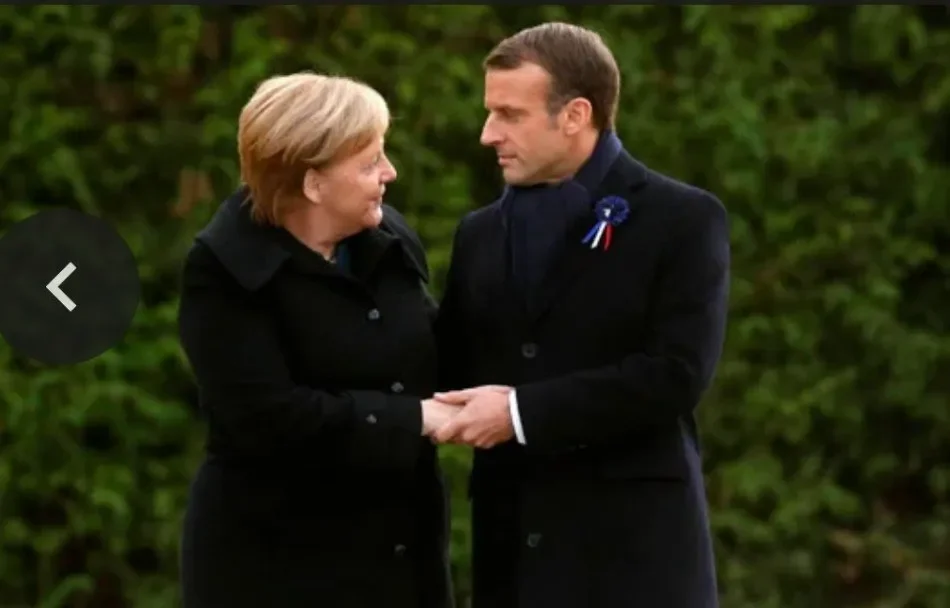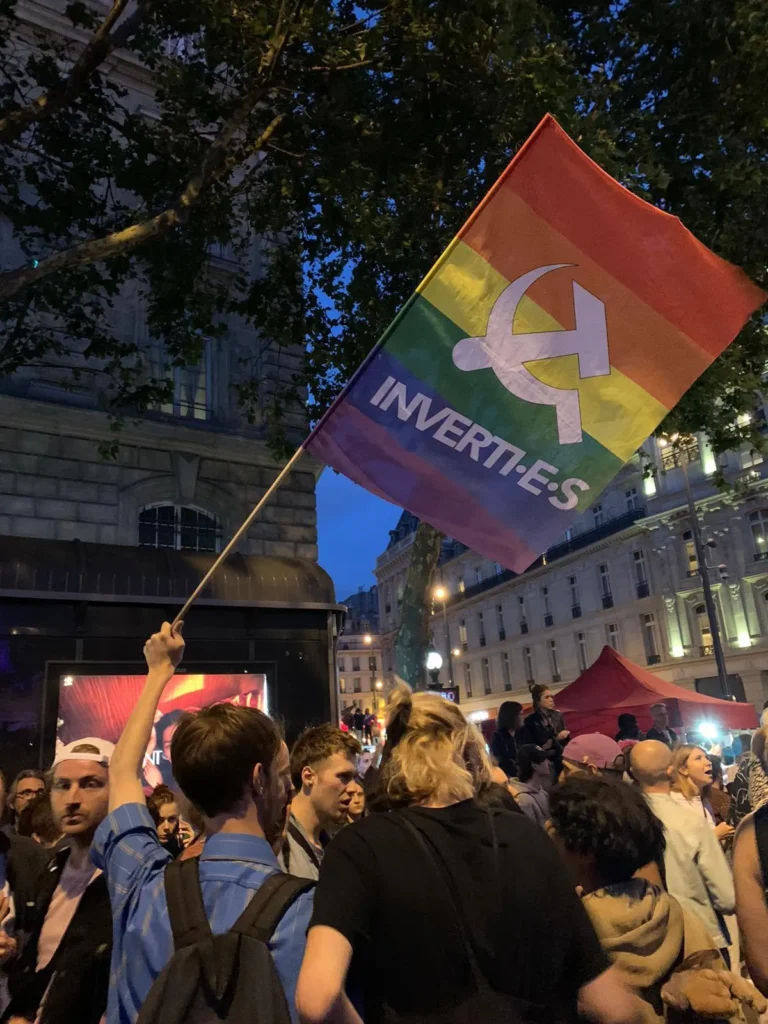What are the implications of a hung parliament for France’s future?
The French races have brought about a hung parliament, with no single party or consolidation securing a larger part. This result has noteworthy suggestions for France’s future or Hung Parliament on France:

Political Uncertainty and Gridlock
- The need for a clear larger part implies France faces the prospect of a delayed period of political vulnerability and potential gridlock, as parties ought to arrange and compromise to make a government.
- This might block the government’s capacity to actualize major arrangements and changes, as decision-making will be more challenging in a hung parliament.
Economic Instability
- The political instability is likely to unsettle money-related markets and weaken financial specialist certainty within the French economy, the second-largest within the EU.
- Concerns over the left-wing coalition’s charge and investing plans, as well as France’s existing fiscal challenges, may assist shake markets and the economy.
Implications for International Affairs
- France’s capacity to play a driving part within the EU and on the worldwide organize, counting within the progressing strife in Ukraine, may be compelled by the political precariousness.
- The upcoming Paris Olympics seem moreover to be influenced by the need for a steady government to supervise the arrangements and occasion.
Potential for Renewed Extremism
- The solid execution of the far-right National Rally party, despite falling brief of a larger part, seems to encourage radical powers and lead to political polarization in France.
By and large, the hung parliament in France represents a critical political and financial challenge, with far-reaching suggestions for the nation, the EU, and the broader universal community. Exploring this strange domain will require compromise and participation among the different political groups to create a useful government and address France’s squeezing issues.
The Pope Francis’s Radical Plan to Reshape Social Justice

What are the chances of a grand coalition forming in France?
Ideological Differences Hinder Coalition Formation
- This demonstrates that whereas the centrist Gathering amalgamation and the left-wing Unused Well-known Front organization together may participate to a few degree to counter the far-right National Rally, the likelihood of a formal organization together between them remains moo due to their “ideological contrasts”.
- The left-wing fusion is anticipated to be the “overwhelming drive” in a potential government, which the centrist Outfit party may be unwilling to acknowledge.
Lack of Precedent for Coalition Governments in France
- The look comes about the note that a hung parliament is an “unfamiliar territory for modern France”, in differentiation to other European nations more acclimated to fusion governments.
- The centralised nature of the French administration’s advance complicates the capacity to create a steady fusion government.
Polarized Political Landscape Poses Challenges
- The serious polarization of French legislative issues, exacerbated by the quick and warmed decision campaign, is likely to prevent endeavours to make an agreeable, cross-party government.
- The decision comes about reflecting the public’s discontent with issues like swelling, wrongdoing, and movement, making compromise between the ideologically disparate parties troublesome.

What are the ideological differences between the left-wing and centrist parties in France?
Emphasis on Equality vs. Pragmatism
- The look comes about to demonstrate that the left-wing parties, such as the Modern Prevalent Front collusion, put a solid accentuation on “thoughts such as opportunity, balance, crew, rights, advance, change and internationalism.”
- In differentiation, the centrist parties, like Macron’s Outfit consolidation, are depicted as more down to business, centred on “commonsense, evidence-based arrangements over ideological virtue” and finding an “adjusted approach” between cleared out and right.
Meeting of Kate Middleton and Prince William
Views on the Role of Government
- The left-wing parties tend to favour a more dynamic part of the government intending to social and financial issues, supporting approaches like a solid welfare state and dynamic tax assessment.
- The centrist parties, although not fundamentally contradicting a part of the government, are more slanted towards market-oriented economic approaches and an adjusted approach between state mediation and free-market standards.
Social Policies
- The look comes about proposes the left-wing parties are more socially dynamic, supporting respectful freedoms, LGBTQ+ rights, and compromise on petulant social issues.
- The centrist parties are depicted as more socially direct, seeking to adjust diverse social sees instead of taking a solid ideological position.
Internationalism vs. Nationalism
- The left-wing parties are related to “internationalism” and a more globalist viewpoint, whereas the centrist parties may be more slanted towards an “adjusted” approach that considers national interface near worldwide cooperation.
What are the main social policies advocated by left-wing parties in France?
Emphasis on Equality and Social Justice
- The Cleared Out Party (PG) advocates for “human liberation” and “breaking with the mastery of the capitalist rationale of most extreme and perpetual aggregation”, showing a solid centre on balance and social equity.
- The Modern Well known Front (NFP) coalition proposes arrangements like a critical increment within the least wage and connecting compensation to costs to improve the living guidelines of the underprivileged.
Expansion of the Welfare State
- The search comes about says that beneath the left-wing administration of François Mitterrand within the 1980s, there was a “sharp increment in welfare benefits” and the presentation of measures like retirement at age 60.
- The NFP’s motivation incorporates giving free school dinners and proposing an accentuation on growing social welfare programs.
Support for Civil Liberties and Diversity
- The look comes about to characterize left-wing parties in France as being “socially dynamic, supporting respectful freedoms, LGBTQ+ rights, and compromise on petulant social issues.”
- This demonstrates a centre on advancing social resilience and inclusivity.
Environmentalism and Ecosocialism
- The Left Party (PG) advocates for “ecosocialism” as an elective to capitalism, pointing to “contribute in a commendable way to the battle against the approaching environmental catastrophe.”
- This recommends a solid emphasis on natural assurance and feasible improvement inside a left-wing arrangement system.
In outline, the key social arrangements pushed by left-wing parties in France show up to rotate around progressing correspondence, growing the welfare state, supporting gracious freedoms and differences, and advancing environmentalism and ecosocialism as an elective to the current capitalist framework.
How has the Left Party influenced French electoral campaigns
Forming the Left Front Coalition
- In 2008, the PG joined powers with the Communist Party and six other left-wing organizations to make the Cleared Out Front amalgamation for the 2012 presidential decision.
- This union permitted the PG to open up its message and reach a more extensive gathering of people amid the campaign.
Nominating Jean-Luc Mélenchon as Presidential Candidate
- The PG co-founder Jean-Luc Mélenchon was the Cleared Out Front’s candidate in the 2012 and 2017 presidential decisions.
- Mélenchon’s charismatic authority and left-wing populist talk energized the party’s base and pulled in bolster from irritated voters.
Advocating for Ecosocialism
- The PG advocates for ecosocialism as an elective to capitalism, pointing to the battle against “the approaching environmental catastrophe” through a major change in generation and utilization modes.
- This position has impacted the left’s natural motivation and pushed other parties to address climate alteration in their campaigns.
Joining the New Popular Front Coalition
- Within the 2024 snap decisions, the PG helped animate the New Popular Front (NPF) consolidation, which was anticipated to win the foremost seats within the National Gathering.
- The NPF’s startling triumph illustrated the PG’s ability to fashion unions and mobilize voters around a common left-wing stage.
In any case, the PG’s constituent record has been blended, because it has however to run autonomously in a national race. The party’s impact has been more articulated in forming the talk and plan of the broader cleared out in France through its backing of ecosocialism, its support in left-wing coalitions, and its part in designating conspicuous candidates like Jean-Luc Mélenchon.
How did the snap election impact voter turnout and party strategies
The effect of a snap election on voter turnout and party techniques can be noteworthy:
Voter Turnout
- No Critical Diminishment in Voter Turnout: Considers recommend that snap decisions don’t essentially lead to a noteworthy decrease in voter turnout. For case, an overview in Canada found that citizens who were irate at the choice to make an early decision were not less likely to vote.
- Increased Voter Turnout in A few Cases: In any case, there are occasions where snap races have driven expanded voter turnout. For occasion, the 2019 Ukrainian parliamentary decision saw a better voter turnout due to the snap survey called by President Volodymyr Zelenskyy.
Party Strategies
- Officeholder Advantage: Snap decisions regularly advantage the occupant party if called at a beneficial time. This is often because the occupant can capitalize on their existing ubiquity and energy to secure a better larger part.
- Reverse discharges on the Occupant: Then again, snap decisions can moreover reverse discharge on the officeholder in a case called as well early or under unfavourable circumstances. For case, the 1984 snap decision in United Zealand drove the Work Party to take control after Prime Serve Robert Muldoon’s government misplaced its larger part.
- Expanded Polarization: Snap decisions can moreover contribute to expanded political polarization as parties center on their center supporters and the decision gets to be a submission on the officeholder government’s execution.
In rundown, whereas snap races don’t essentially lead to a critical lessening in voter turnout, they can have a profound impact on party methodologies and voter conduct. The officeholder party frequently benefits from the snap decision if called at the proper time, but it can too reverse discharge if the timing is ominous. Also, snap races can contribute to expanded political polarization and a more serious decision environment